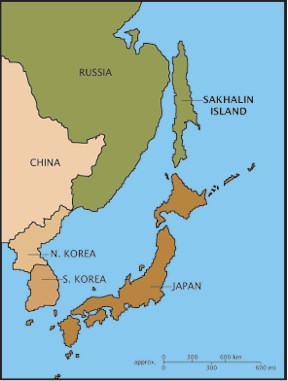
Yoshiteru Nakagawa is one of the last victims of the Soviet tyranny to come to light. At the end of World War II, the Soviet Union fed military prisoners of war, civilians deemed potential enemies, and hundreds of thousands of random people — of dozens of nationalities — into the maw of their vast slave labor system. German conscripts who were captured were enslaved and worked to death in the camps, as were Koreans, Poles, Japanese, Latvians, Chinese, Estonians, Ukrainians, and many others. Many perished and others were forcibly relocated to obscure places. Some married and continued their lives far from where they were abducted. Such sad tag ends of Stalinism are still resurfacing. The story of has a bittersweet ending: after the war he was taken to the Soviet mainland, but never repatriated to his home in Japan until the present, when he has returned for a two-week visit. The BBC’s description speaks volumes.
“I’m so overwhelmed with joy I don’t even know how to express it in words,” Mr Nakagawa said in Russian, translated through an interpreter.
He also spoke a few words in his native language.
(Note: The BBC states that “one of his sisters was quoted by Kyodo news agency as saying Russian forces had mistaken him for a Japanese soldier and taken him to the mainland” from Sakhalin, but the Sakhalin Times tells the story a bit differently:
Nakagawa served as a fighter pilot in the vicinity of the Philippines and later moved to Sakhalin, according to an interview he gave to Kyodo News in 2002. He was taken prisoner the Soviet Union toward the end of the war but was later given permission to return to Japan. Instead, he chose to stay.
Nakagawa married a Russian woman but subsequently divorced, according to the interview. A few Japanese who stayed on in the Soviet Union after the end of the war lived in Sakhalin. Between 1989 and the end of last month, 63 of them had returned to Japan permanently, the ministry officials said.
In the absence of further information, and with some knowledge of how many survivors were forbidden to return home, I suspect that the BBC’s account is closer to the truth. The stories of Japanese kidnap victims returning from North Korea are sadly similar: since they were unable to return home, they did their best to survive and make lives as prisoners.










And people believed that Communism was great!?